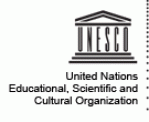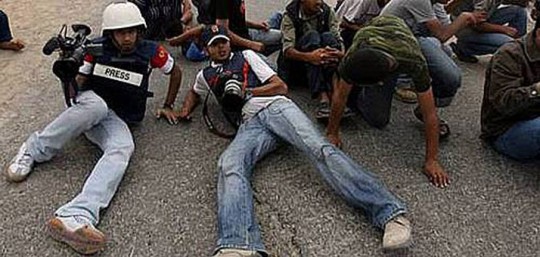UNESCO chief condemns latest murder of journalist in Somalia.
UNESCO chief condemns latest murder of journalist in Somalia.
31 January 2012 – The head of the United Nations agency tasked with promoting and defending the freedom of the press today condemned the murder of a journalist in Somalia and called for measures to improve the safety of media professionals in the Horn of Africa country.
Hassan Osman Abdi, 29, a journalist and director of the Shabelle Media Network, a private radio and television network, was shot dead by unidentified gunmen on Saturday at his home in the capital, Mogadishu, according to local sources cited by the UN Educational, Scientific and Cultural Organization (UNESCO).
“The murder of Hassan Osman Abdi is a severe blow to a country where the media have paid a heavy price for exercising the human right to freedom of expression,” said Irina Bokova, UNESCO’s Director-General, in a press release.
“The death of journalists undermines the right of people to be kept informed. Somalia’s reconciliation and reconstruction will not take place without securing respect for these two rights.”
She urged the Somali authorities to take urgent measures to improve the safety of journalists and investigate the murder of Mr. Abdi, who was reportedly shot by five gunmen after arriving home from Radio Shabelle, where he worked on political issues.
Some 21 Somali journalists and other media professionals have been listed on UNESCO’s dedicated web page ‘UNESCO Remembers Assassinated Journalists,’ since 2006.
Last year, UNESCO provided equipment and training on safety, conflict-sensitive journalism and humanitarian reporting to more than 40 media professionals in Somalia. The training was intended to enhance the quality and flow of information on humanitarian issues to audiences inside Somalia and to Somali refugees in camps in neighbouring countries.
In 2010, UNESCO, in collaboration with Radio Netherlands Training Centre, provided training to 20 Somali community radio journalists, helping them to improve their ability to work in an environment of conflict.
###
Director-General condemns murder of Somali journalist Hassan Osman Abdi and urges Somalia to improve media safety.
Hassan Osman Abdi (29) was a journalist and director for Shabelle Media Network, a private radio and television network in Somalia. He was killed on 28 January at his home in the capital, Mogadishu. According to local sources, Abdi was shot dead by five gunmen after returning from Radio Shabelle, where he worked on political issues.
Twenty-one Somali journalists and media workers have been listed on UNESCO’s dedicated webpage, UNESCO Remembers Assassinated Journalists, since 2006.
In 2011, UNESCO provided equipment and training on safety issues, conflict-sensitive journalism and humanitarian reporting to more than 40 media professionals in Somalia. The purpose of this assistance was to enhance the quality and flow of humanitarian information in the country and neighbouring refugee camps. In 2010, UNESCO, in collaboration with Radio Netherlands Training Centre (RNTC), provided training to 20 Somali community radio journalists, helping them improve their ability to work in an environment marked by conflict.
###
About UN Educational Scientific and Cultural Organization (UNESCO)

UNESCO works to create the conditions for dialogue among civilizations, cultures and peoples, based upon respect for commonly shared values. It is through this dialogue that the world can achieve global visions of sustainable development encompassing observance of human rights, mutual respect and the alleviation of poverty, all of which are at the heart of UNESCO’S mission and activities.
The broad goals and concrete objectives of the international community – as set out in the internationally agreed development goals, including the Millennium Development Goals (MDGs) – underpin all UNESCO’s strategies and activities. Thus UNESCO’s unique competencies in education, the sciences, culture and communication and information contribute towards the realization of those goals.
UNESCO’s mission is to contribute to the building of peace, the eradication of poverty, sustainable development and intercultural dialogue through education, the sciences, culture, communication and information. The Organization focuses, in particular, on two global priorities:
- Africa
- Gender equality
And on a number of overarching objectives:
- Attaining quality education for all and lifelong learning
- Mobilizing science knowledge and policy for sustainable development
- Addressing emerging social and ethical challenges
- Fostering cultural diversity, intercultural dialogue and a culture of peace
- Building inclusive knowledge societies through information and communication
###
> United Nations (UN).
 The United Nations was established on 24 October 1945 by 51 countries committed to preserving peace through international cooperation and collective security. Today, nearly every nation in the world belongs to the UN: membership totals 192 countries.
The United Nations was established on 24 October 1945 by 51 countries committed to preserving peace through international cooperation and collective security. Today, nearly every nation in the world belongs to the UN: membership totals 192 countries.
When States become Members of the United Nations, they agree to accept the obligations of the UN Charter, an international treaty that sets out basic principles of international relations. According to the Charter, the UN has four purposes:
- to maintain international peace and security;
- to develop friendly relations among nations;
- to cooperate in solving international problems and in promoting respect for human rights;
- and to be a centre for harmonizing the actions of nations.
###
* The above story is adapted from materials provided by United Nations (UN)
** More information at United Nations (UN)





















